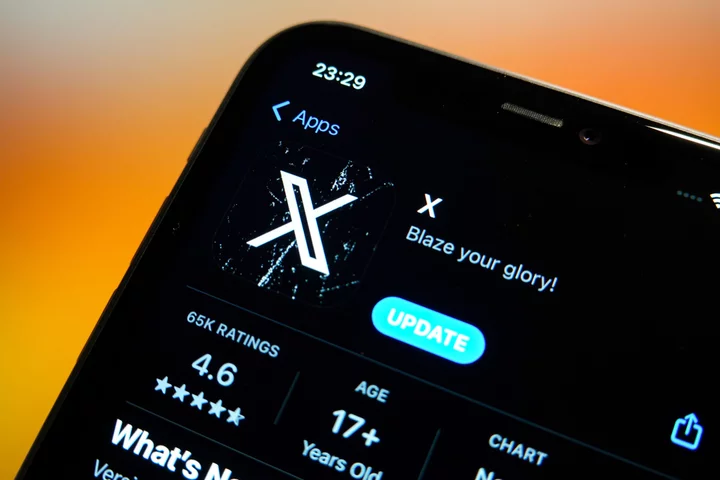Users of X, the platform formerly known as Twitter, likely noticed a pop-up when logging in today. The prompt asks them to agree to X's new privacy policy and terms of service (ToS). With Elon Musk changing so much on the platform, any updates could be pretty significant for users. (Heck, the platform has an entirely new name now.)
So, Mashable has decided to dive in. Yesterday, we published the updates to X's privacy policy. And there were a lot. The new privacy policy inserts wording that says X can use data on the platform to train AI models, collect metadata for encrypted messages, and store data related to a user's biometric information.
Now, let's look at the new terms of service.
What does the new X ToS focus on?
The first thing you’ll see is a summary of the ToS, which is basically just some bullet points of X’s overall terms. The summary includes terms from the old ToS, not just the new additions to the updated one. But, what is interesting is what X chooses to highlight.
For example, the very first bullet point in the ToS summary is advertising.
"You will see advertising on the platform: In exchange for accessing the Services, X and our third-party providers and partners may display advertising to you," reads the summary.
Another bullet point focuses on one of Musk’s own pet peeves: Data scraping. This is when a website's content is pulled in order to save it locally or bring it into another program or platform — either manually or through automation. It has legitimate purposes and is often used by researchers and educators, but can also be used nefariously by bad actors like spammers.
"You may not access the Services in any way other than through the currently available, published interfaces that we provide," says the ToS summary. "For example, this means that you cannot scrape the Services, try to work around any technical limitations we impose, or otherwise attempt to disrupt the operation of the Services."
Last month, X actually sued four anonymous data scrapers, so it's clear that Musk's company is taking this issue very seriously.
The ToS summary also highlights that X can terminate a user's account for a variety of reasons, such as "prolonged inactivity, risk of legal exposure, or commercial inviability."
Some clauses from the ToS are already being shared on social media, specifically the aforementioned "commercial inviability" one. However, the old Twitter terms explicitly said that the company could suspend or terminate a user's account for any reason. In fact, the new X terms say the exact same thing, they just provide more examples of what those reasons could be.
Another area that was causing concern on X among users, especially those in the art community, was the section about who owns the rights to the content a user posts. According to X's terms, users own their content. But, by posting content, they provide X with a "worldwide, non-exclusive, royalty-free license (with the right to sublicense) to use, copy, reproduce, process, adapt, modify, publish, transmit, display and distribute" it. These terms, however, are exactly how they appeared in the previous terms of service. In fact, they are very similar to the ToS for most social media platforms.
What's different in X's ToS?
When compared to the privacy policy, the updates to the terms of service were a lot less stark. However, there were a few significant additions that users should be aware of.
Much like the privacy policy changes, X's ToS saw lots of swapping out of platform terminology. Twitter, of course, was dropped throughout in favor of the platform's new name, X. Tweets were changed to posts. Retweets were renamed reposts. Periscope was removed entirely, as the stand-alone livestreaming platform no longer exists.
Another change, which was also added to the privacy policy, regards the terms of service in non-English languages. X added a statement saying that if there are "any discrepancies or inconsistencies" in the translated versions of the ToS, "the English language version of the X ToS shall take precedence."
The first real change in X's terms of service is an addition to the Using the Service section, which outlines the rules and policies that users of the platform must follow.
While the previous Twitter ToS doesn't appear to explicitly mention the consequences of not abiding by the policies, the new X ToS does.
"X takes enforcement actions when Content or user behavior is in violation of our Rules and Policies or in relation to sensitive media," the additional text reads while linking to the Rules and Policies page on the website. The ToS also provides a link to a page detailing how X can enforce its rules when a user breaks them.
While the company didn't change the ToS policy wording when it came to spam, data scraping, and a few other things Musk has been against — likely due to this section being quite robust in the Twitter ToS — the X ToS has a whole new section specifically for these cases, titled "Misuses of Service."
Aside from moving things around and some rewording of sections, there is only one entirely new clause in the X terms of service. It's about the legal action that users can — or, rather, can't — take against the company.
"To the extent permitted by law, you waive the right to participate as a plaintiff or class member in any purported class action, collective action or representative action proceeding," reads the new X terms of service.
Companies usually include this language in their ToS in an attempt to push any legal issues toward arbitration, which is traditionally more friendly to corporations. What is interesting here is that X apparently included this language in its employee agreements, which resulted in a lawsuit from former employees being dropped in favor of arbitration. But, now, X is refusing to pay the required arbitration fees related to those cases, which ex-employees are suing over. The reason X is refusing to pay the fees? It claims it never required its former employees to drop their class action lawsuit in favor of arbitration.
According to X, the new terms of service and privacy policy officially go into effect on September 29, 2023.









